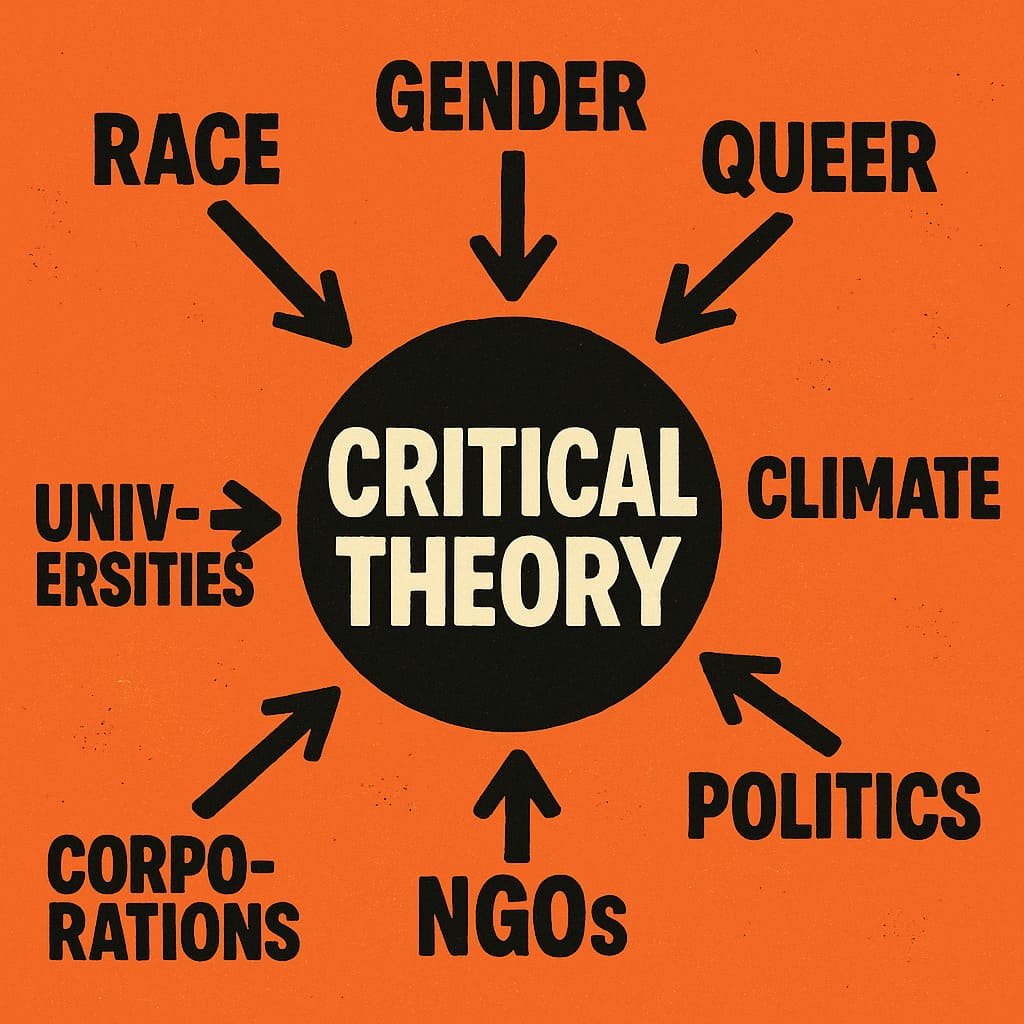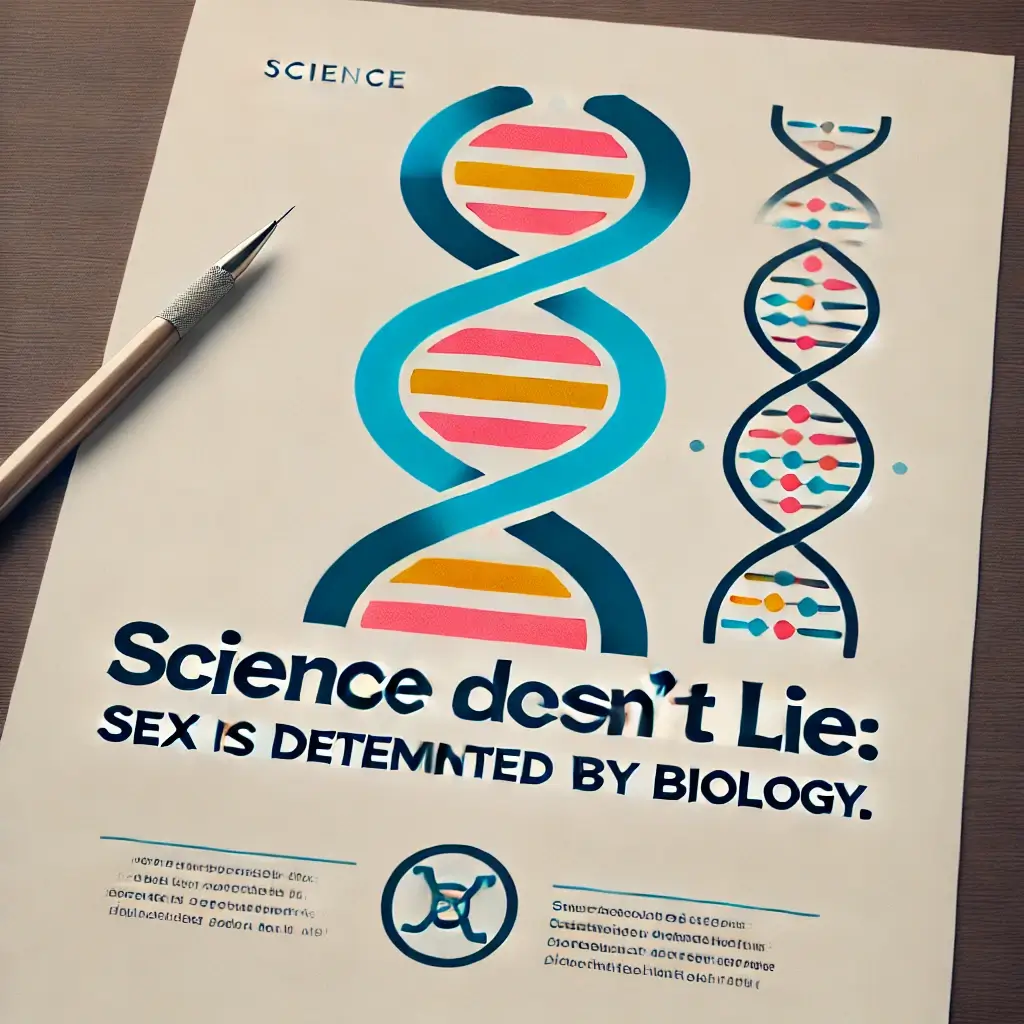Critical Theory Explainer Hub
Why This Hub Exists
Critical Theory started as an academic critique of capitalism and culture. Over time, it became the engine behind today’s culture wars — reshaping politics, activism, corporations, and even universities.
This hub pulls everything together. It links all our plain-language explainers so you can see how Critical Theory moved from obscure theory to the operating system of modern identity politics.
The Foundations of Critical Theory
- Critical Theory – The Blueprint for Woke Politics
The origin story. How the Frankfurt School turned “critique” into the foundation of modern woke politics. - Postmodernism – Why Truth Went Missing
The French twist. How postmodern thinkers made truth optional and armed Critical Theory with new tools.
Critical Theory in Practice
- Critical Race Theory – When Racism Becomes the System
From law schools to HR offices — why CRT insists racism is everywhere, permanent, and systemic. - Gender Theory – When Biology Became Optional
How gender shifted from biology to performance and self-identity. - Queer Theory – When Identity Becomes Endless
Why smashing categories like male/female or gay/straight created permanent activism.
Applications in the Real World
- Politics & Identity Activism – How Laws Bend Under Pressure
How outrage cycles and hashtags shape laws and policies. - NGOs & Activism – The Business of Selling Justice
Why NGOs speak the language of justice while operating as industries. - Climate Justice – When Saving the Planet Becomes About Power
How climate debates turned into politics of inequality and reparations. - Corporations – Virtue as a Marketing Strategy
Why CEOs prefer rainbow logos and pledges to real reform. - Universities – The Factory of Woke Graduates
How campuses moved from debate to conformity, producing activists instead of thinkers.
Other Offshoots of Critical Theory
- Disability Studies – When Society Becomes the Disability
- Fat Studies – When Obesity Becomes Oppression
- Trans Studies – When Identity Replaces Biology
- Postcolonial Theory – When Empire Never Ends
- Critical Migration Studies – When Borders Become Oppression
Each of these reframes identity or history as permanent oppression — expanding Critical Theory’s reach into every corner of life.
Why It Matters
Critical Theory isn’t just an academic idea. It’s the framework behind identity politics, corporate branding, and today’s endless culture wars.
By starting here, you can connect the dots: from the Frankfurt School to modern activism, and from theory to everyday policies that shape our world.
FAQ: Critical Theory Explainer Hub
What is the Critical Theory Explainer Hub?
It’s our index page linking all explainers on Critical Theory and its offshoots.
How is this different from the main Critical Theory article?
The article dives deep into Critical Theory itself. The hub connects all related content in one place.
What topics are included?
Foundations like the Frankfurt School and Postmodernism, offshoots like Race, Gender, and Queer Theory, and real-world applications in politics, NGOs, corporations, universities, and activism.
Why does this matter today?
Because Critical Theory underpins modern culture wars, identity politics, and much of corporate and political language.
How does Gender Theory differ from Trans Studies or Queer Theory?
- Gender Theory argued that roles like “man” and “woman” were social scripts — flexible performances learned from culture, not fixed by biology.
- Trans Studies pushed further: it claimed biology itself is irrelevant, and gender is whatever identity a person declares. Institutions, from schools to governments, must adapt to affirm that identity.
- Queer Theory went all the way: it treats the very categories — male/female, gay/straight — as oppressive boxes. The binaries enforce conformity and privilege “normality.” By smashing them, Queer Theory promises liberation. The catch? Instead of fewer categories, it produces endless new ones — each demanding recognition, laws, and policies.
- In short: Gender Theory = roles flexible / Trans Studies = identity declared / Queer Theory = categories meaningless



